Ronnie Coleman is a name synonymous with bodybuilding greatness. His sheer size, unmatched muscularity, and unparalleled dedication to the sport have left an indelible mark on the world of bodybuilding.
With eight Mr. Olympia titles to his name, Ronnie Coleman’s career is a testament to hard work, perseverance, and an unwavering commitment to excellence. However, even legends face their toughest battles.
In a recent YouTube video, Ronnie Coleman reflected on his illustrious career, revealing that the 2001 Mr. Olympia was by far the most challenging contest he ever faced.
The King’s Reign: Ronnie Coleman’s Legacy
A Titan Among Titans
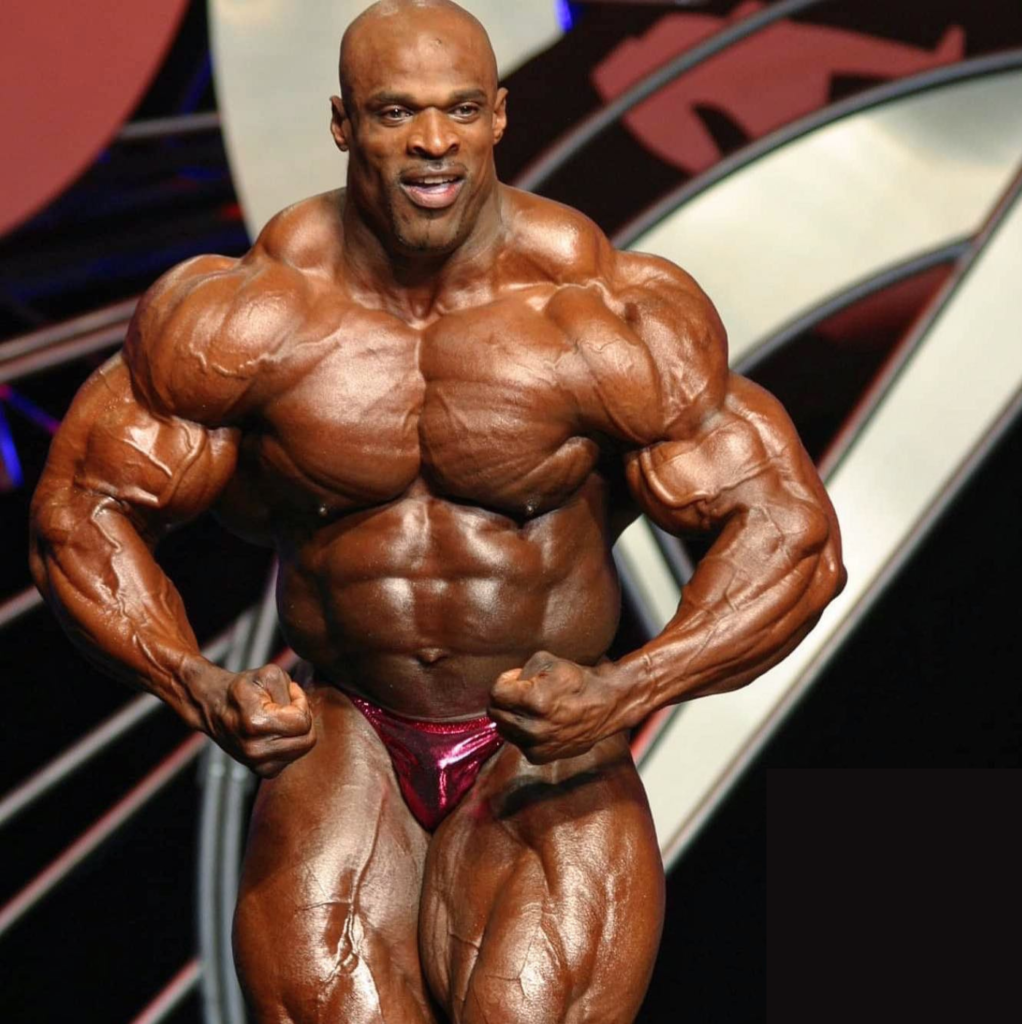
Ronnie Coleman’s dominance on the bodybuilding stage throughout the 1990s and early 2000s is the stuff of legend.
Standing at 5’11” and competing at around 300 pounds, Ronnie Coleman’s combination of size, symmetry, and definition set a new standard in the sport.
His journey to the top was marked by an unrelenting work ethic and a passion for pushing the boundaries of what was physically possible.
Eight-Time Mr. Olympia Champion
Ronnie Coleman’s record speaks for itself. Tied only with Lee Haney for the most Mr. Olympia wins, Ronnie Coleman’s eight titles are a testament to his consistency and dominance.
Each victory was a showcase of his ability to improve year after year, bringing a progressively better package to the stage.
His reign from 1998 to 2005 solidified his place as one of the greatest bodybuilders of all time.
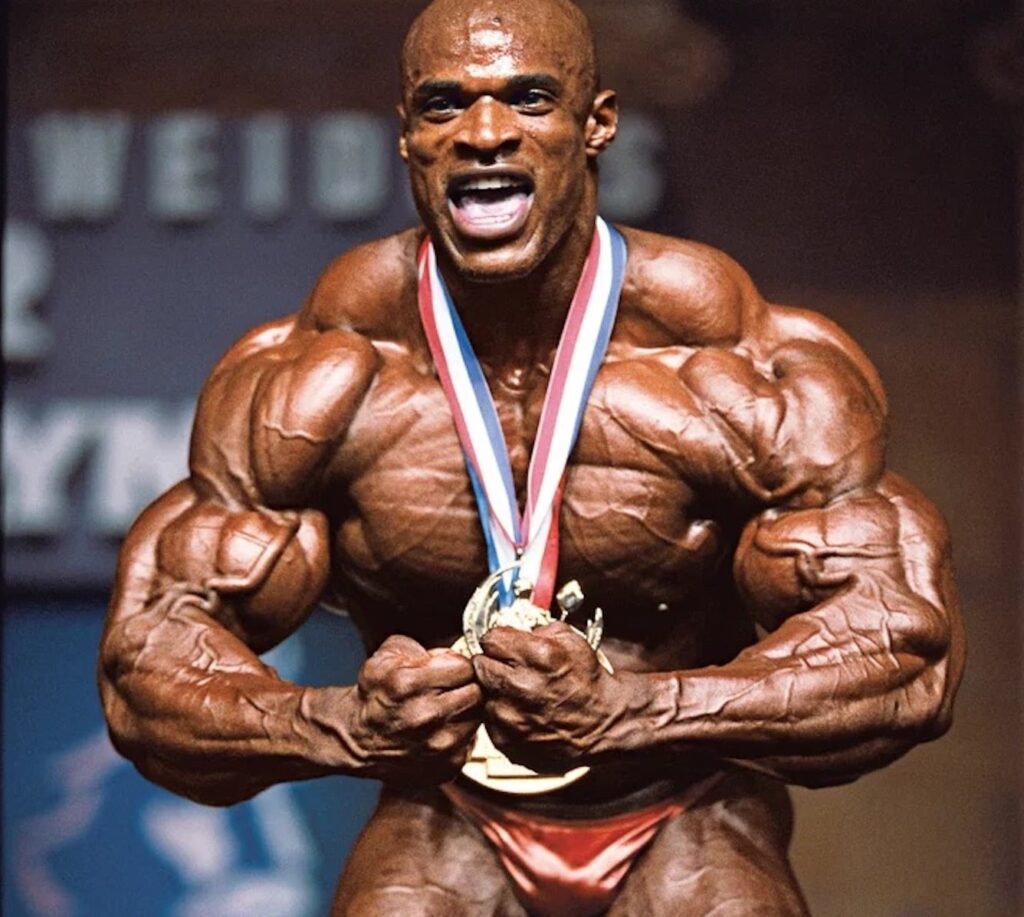
The Historic 2001 Double Victory
In 2001, Ronnie Coleman achieved a feat that had never been accomplished before.
He became the first athlete to win both the Arnold Classic and Mr. Olympia in the same year.
This double victory underscored his versatility and his ability to peak perfectly for two of the sport’s most prestigious events.
The Philosophy of Ego Lifting
The Merits and Risks
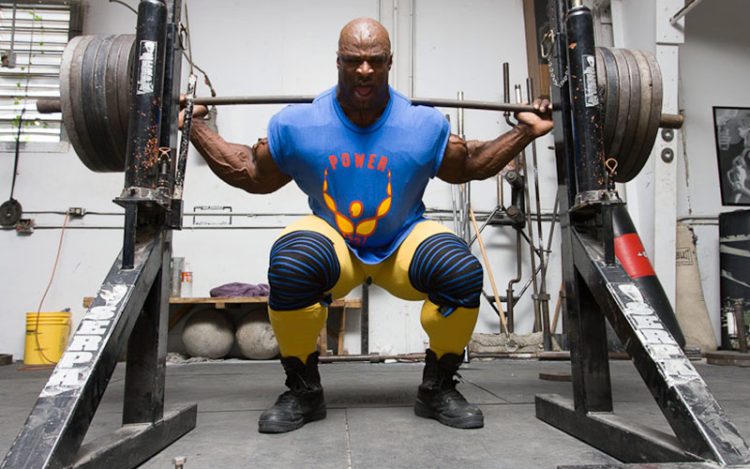
In his recent video, Ronnie Coleman discussed his approach to training, highlighting his use of heavy weights to build muscle.
He emphasized that lifting heavy was central to his strategy for muscle growth, stating, “Put on as much muscle as possible.
That’s why you always saw me lifting those heavy ass weights because ain’t no better way to put on muscle than to lift some heavy ass weight. Yeah, buddy!”
Understanding Ego Lifting
Ego lifting, as described by Ronnie Coleman, involves lifting heavier weights primarily to bolster one’s ego rather than for functional or progressive overload purposes.
While it can have its merits in terms of motivation and pushing limits, it also carries significant risks, including the potential for injury.
Ronnie Coleman candidly acknowledged his own experiences with ego lifting, saying, “Well, I’ll say, I like ego lifting about as much as the next guy likes ego lifting. As a matter of fact, I think we all like to ego lift just to bolster our egos.”
The Balance Between Strength and Safety
Ronnie Coleman’s reflections on ego lifting offer valuable insights into the delicate balance between pushing oneself to new limits and maintaining safety.
His career, marked by both incredible strength feats and subsequent injuries, serves as a cautionary tale about the importance of training smart.
The 2001 Mr. Olympia: The Hardest Battle
The Morning of the Contest
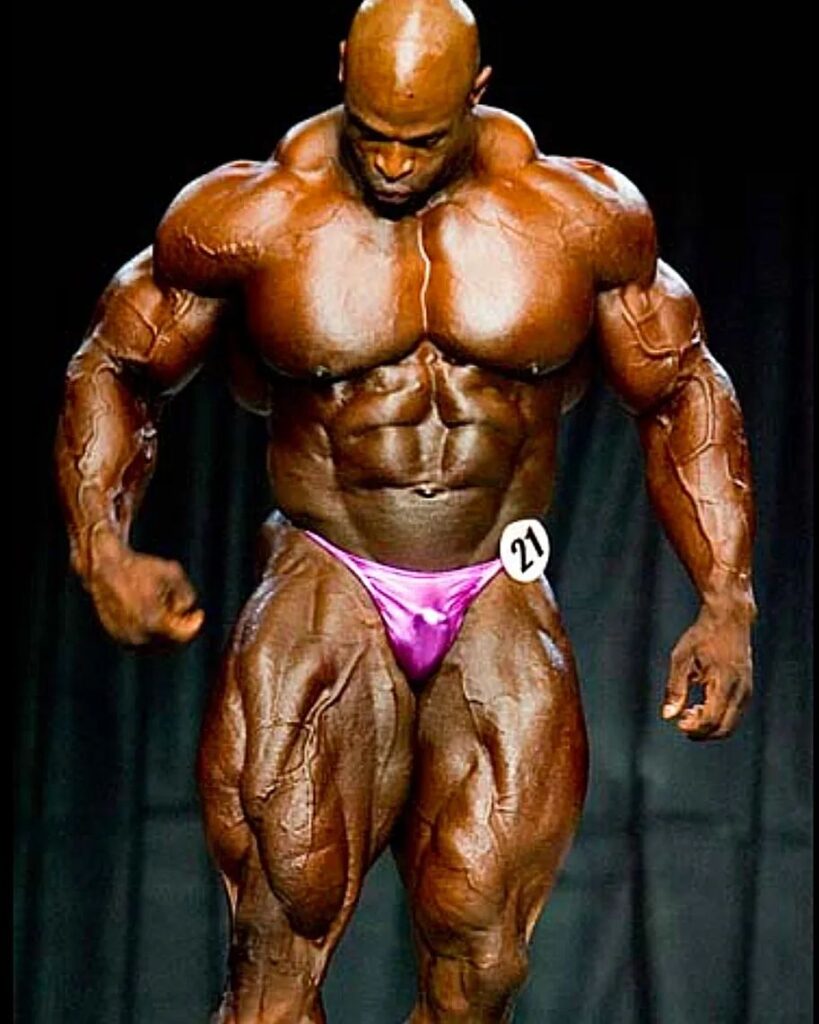
Despite his numerous victories, Ronnie Coleman describes the 2001 Mr. Olympia as the hardest contest of his career.
On the morning of the event, Ronnie Coleman experienced severe dehydration, which left him feeling as though he was on the brink of death.
“I got to say, all of them. But the hardest one was, probably, 2001 when I was thinking about, at the last minute, not entering because the morning of that show I thought I was about to pass away.”
A Close Call
Ronnie Coleman’s ordeal with dehydration was a stark reminder of the extreme lengths bodybuilders go to achieve peak conditioning.
He recalls feeling “totally dehydrated” to the point where he considered withdrawing from the competition and seeking medical help.
“I remember back in 2001, I’ll never forget it like it was yesterday. I woke up the morning of the Olympia and I felt awful. I was dehydrated, you know, you have to be kind of a little dehydrated to get up there on stage.”
A Lifesaving Decision
Ronnie Coleman credits his nutritionist for convincing him to compete despite his dire condition.
This decision, while incredibly risky, ultimately paid off as Ronnie Coleman went on to win the title.
“I was to the point where I felt like I was kind of dying. It scared the living hell out of me. I called my nutritionist and said hey, dude I feel awful. Forget this show, I’m going to the hospital. I’m not going to die for this sport.”
The 2001 Mr. Olympia: A Closer Look
The Competition
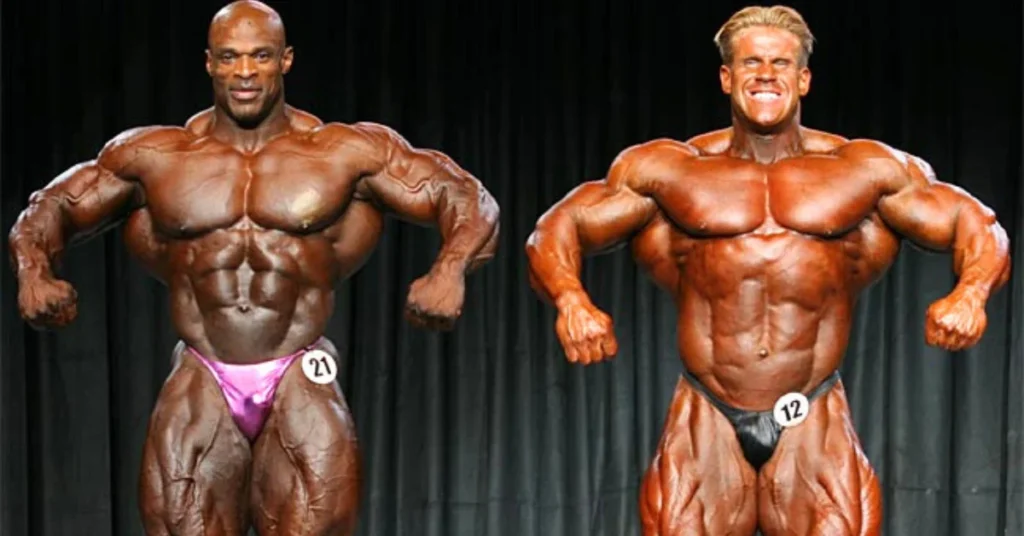
The 2001 Mr. Olympia was one of the most hotly contested events in the history of the competition.
Jay Cutler, a rising star in the bodybuilding world, posed a significant threat to Ronnie Coleman’s reign.
Jay Cutler’s impressive size and conditioning made him a formidable opponent, and many believed he had the potential to dethrone Ronnie Coleman.
The Victory
Despite the intense competition and his own health scare, Ronnie Coleman managed to secure the victory.
His win was a testament to his resilience and his ability to perform under pressure.
This victory, in particular, stands out in Ronnie Coleman’s career not only because of the challenges he faced but also because it solidified his status as a dominant force in the sport.
The Aftermath
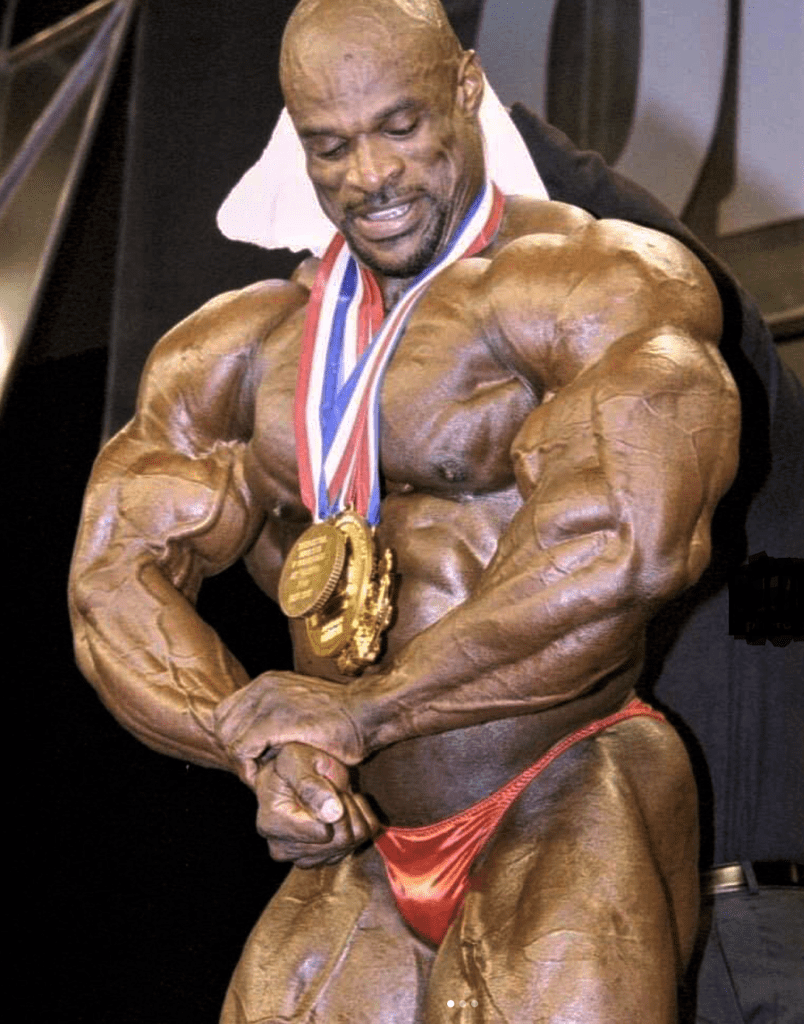
Ronnie Coleman’s victory at the 2001 Mr. Olympia is often looked back upon as one of the most significant moments in bodybuilding history.
It demonstrated the extreme lengths bodybuilders go to to achieve perfection and the mental and physical fortitude required to compete at the highest level.
The Impact of Ronnie Coleman’s Career
Influence on Future Generations
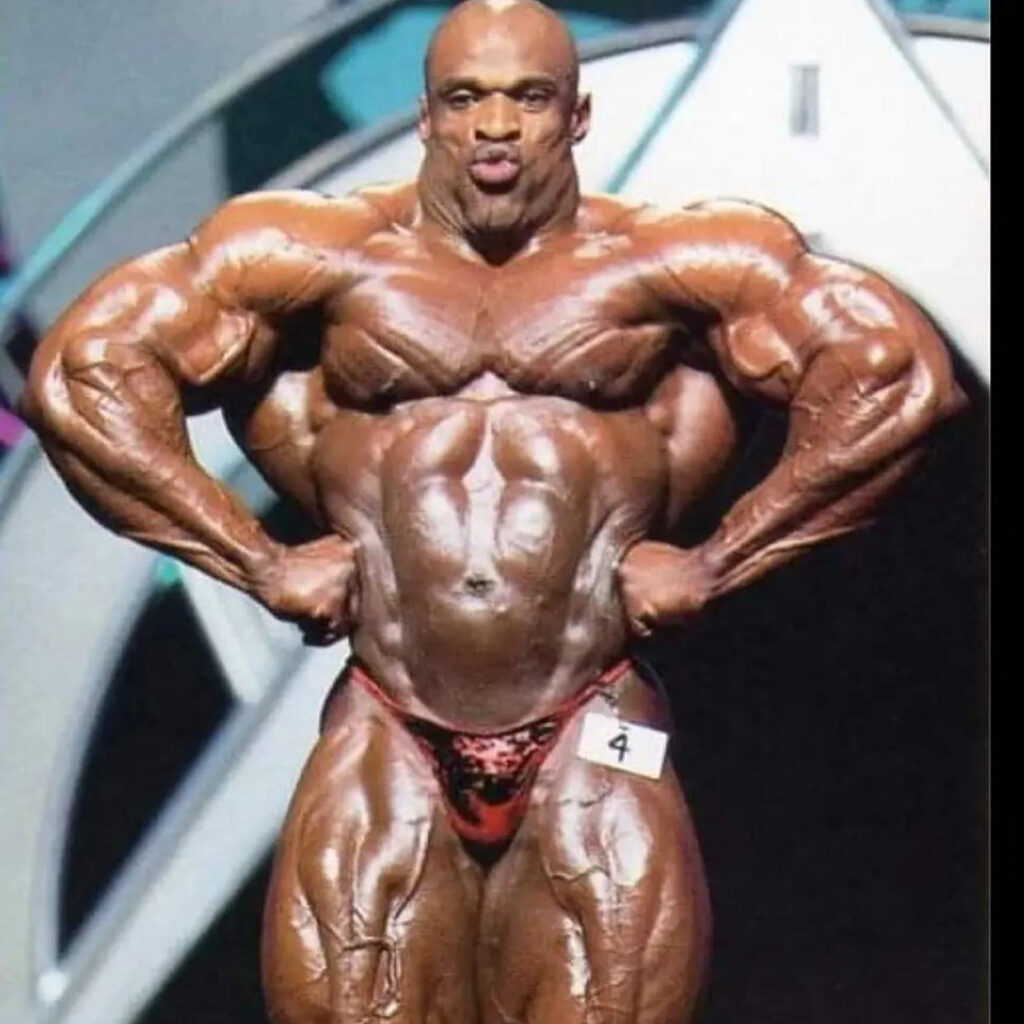
Ronnie Coleman’s career has had a profound impact on the sport of bodybuilding.
His dedication to training, his approach to diet and supplementation, and his sheer willpower have inspired countless athletes around the world.
Ronnie Coleman’s influence extends beyond just his victories; his work ethic and his philosophy of pushing the limits have set a standard for future generations.
Innovations in Training
Ronnie Coleman’s training methods, particularly his use of heavy weights and high-intensity workouts, have influenced how many bodybuilders train today.
His approach to lifting heavy and focusing on compound movements has become a staple in many bodybuilding routines.
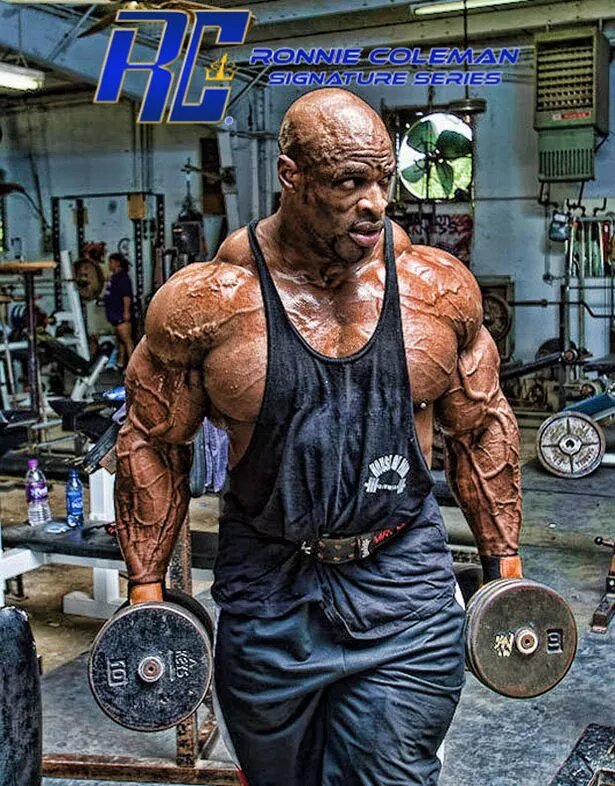
Legacy of Strength
Beyond his physical achievements, Ronnie Coleman’s legacy is one of strength and resilience.
Despite numerous injuries and surgeries, Ronnie Coleman continues to train and inspire others.
His story is a testament to the power of the human spirit and the pursuit of greatness.
Lessons from the King
Training Smart
One of the key lessons from Ronnie Coleman’s career is the importance of training smart.
While lifting heavy can be beneficial for muscle growth, it’s essential to balance this with proper technique and safety measures to prevent injuries.
The Role of Nutrition
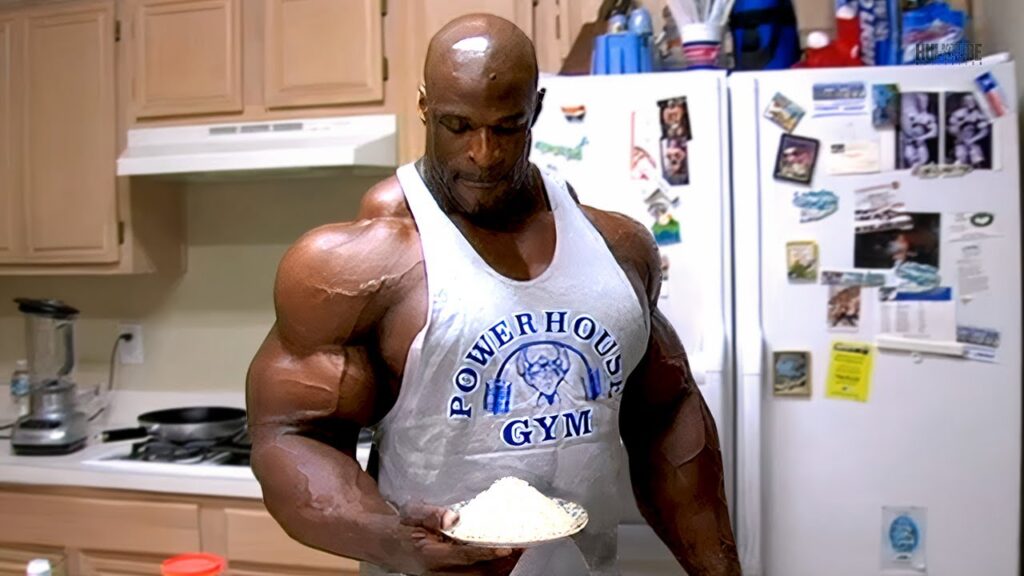
Ronnie Coleman’s experiences also highlight the critical role of nutrition in bodybuilding.
His close call with dehydration in 2001 underscores the importance of proper hydration and nutrition, particularly in the lead-up to competitions.
Mental Resilience
Ronnie Coleman’s ability to push through adversity and compete at the highest level despite significant challenges speaks to the importance of mental resilience.
His career is a reminder that success in bodybuilding, as in life, often comes down to mental toughness and the ability to persevere in the face of obstacles.
Reflecting on an Iconic Career
Post-Retirement Life
Since retiring from competitive bodybuilding, Ronnie Coleman has continued to stay active in the sport.
He remains a popular figure at bodybuilding events and expos, sharing his experiences and insights with fans and aspiring bodybuilders.
Health and Recovery
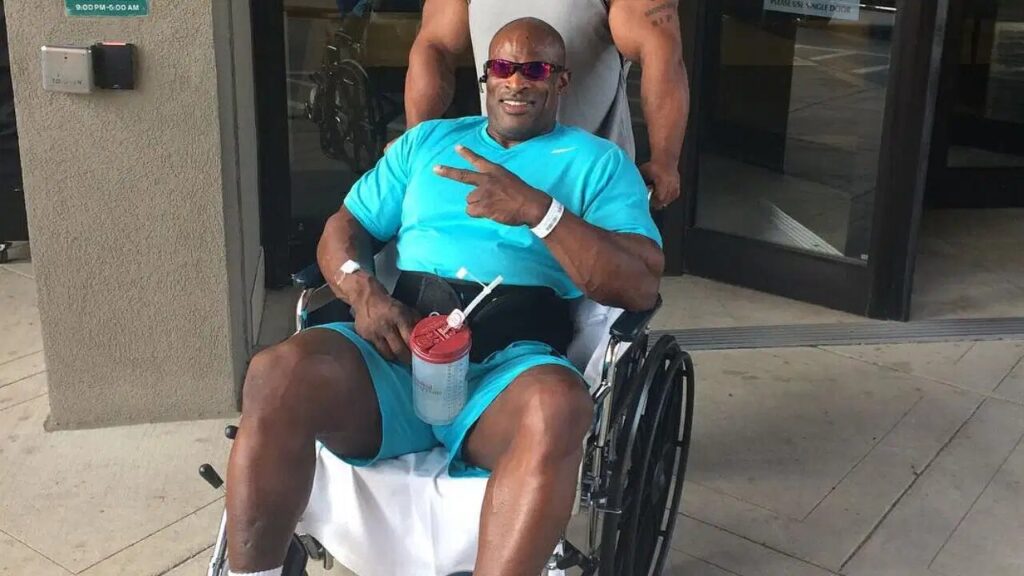
In recent years, Ronnie Coleman has undergone multiple surgeries to address the damage sustained during his career.
Despite these challenges, he maintains a positive outlook and continues to prioritize his health and recovery.
Continued Influence
Ronnie Coleman’s influence on the sport of bodybuilding remains strong.
He continues to inspire through his social media presence, his participation in interviews and podcasts, and his appearances at bodybuilding events.
His story serves as a source of motivation for those looking to achieve greatness in the sport.
Conclusion
Ronnie Coleman’s reflections on ego lifting and his experiences at the 2001 Mr. Olympia provide a fascinating glimpse into the mindset of one of bodybuilding’s greatest champions.
His career, marked by incredible highs and significant challenges, is a testament to the power of determination, resilience, and a relentless pursuit of excellence.
As we look back on Ronnie Coleman’s legacy, it’s clear that his impact on the sport extends far beyond his eight Mr. Olympia titles.
He has inspired generations of athletes, redefined the standards of the sport, and demonstrated what it truly means to be a champion.
Whether through his training philosophy, his competitive spirit, or his unwavering dedication, Ronnie Coleman’s story is one that will continue to inspire and motivate for years to come.
